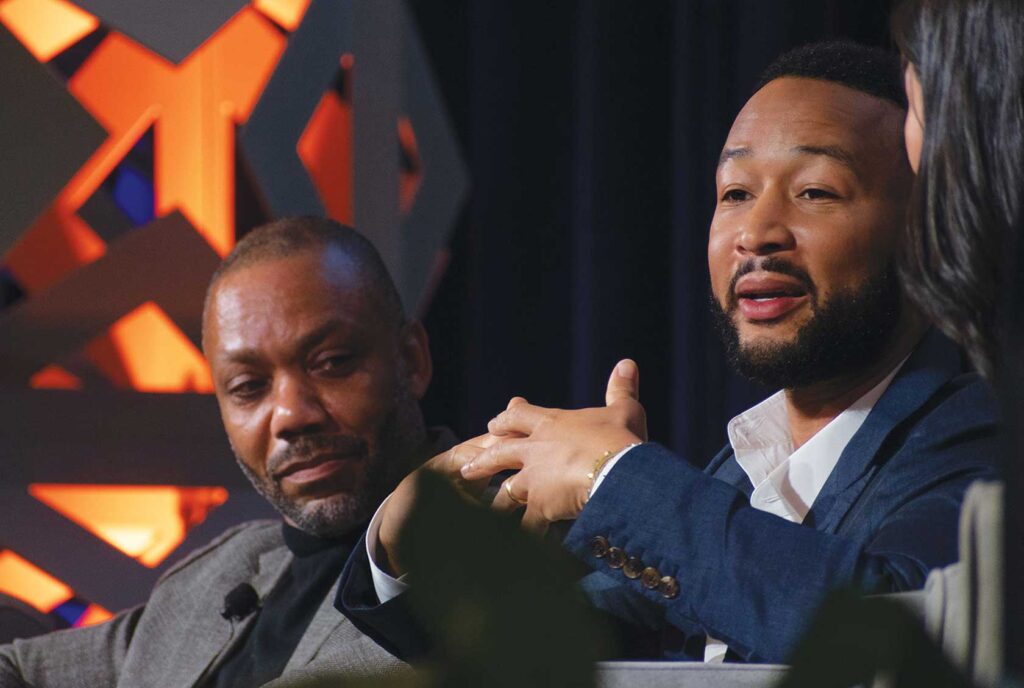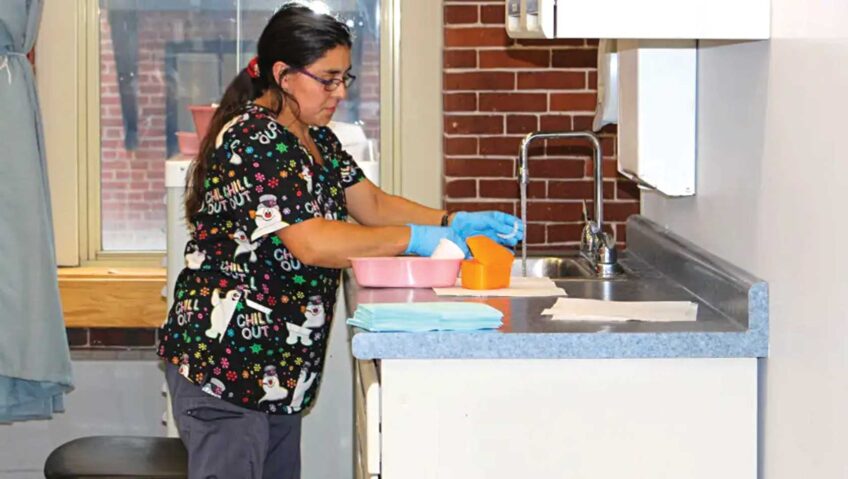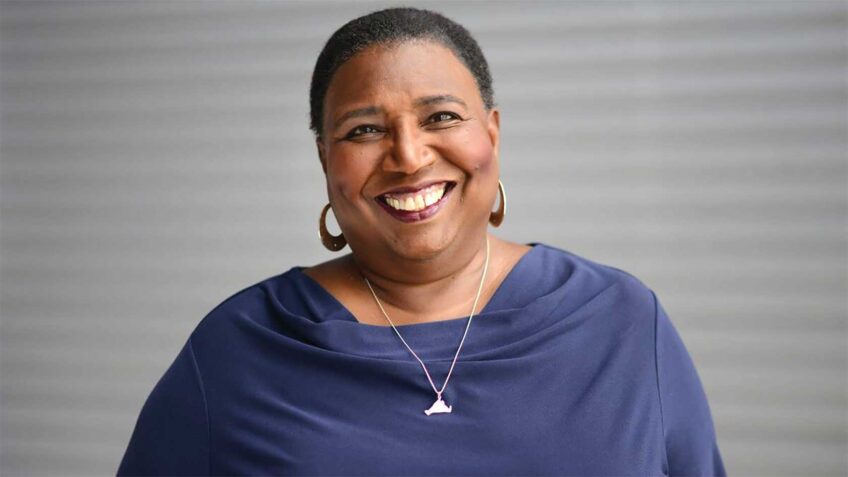
When it comes to running municipal operations, Boston relies on funding from its city budget as well as state and federal funds. But for some city initiatives, projects rely on contributions from philanthropies.
Those dollars may allow the city to try out programs that otherwise would not have been possible. In Boston, partnerships between philanthropies and the municipal government are playing out across the city.
Along the shoreline, the city has connected with the Barr Foundation to work on waterfront resilience. In the harbor, the Cummings Foundation is supporting work to make sure the public health campus there will match the area’s needs. Around Massachusetts Ave. and Melnea Cass Blvd., as the city works to deal with substance use disorder and homelessness, support from The Boston Foundation to expand outreach efforts has been “game changing,” Mayor Michelle Wu said.
Part of the reason philanthropies say they invest in municipal efforts is to try to have more effect. Kalila Barnett, senior program officer for climate resilience at the Barr Foundation — which has provided the city with $4,915,000 in climate-related grants — said municipal government is where the rubber meets the road.
“The city scale is a really critical and foundational element because that’s where people are feeling” impacts, Barnett said. “I think mayors and city government, in particular, you know, have a way of being able to start interesting and innovative projects that can often become examples for what should happen on a statewide or federal level.”

Mayor Michelle Wu explains how philanthropy supports city efforts during a panel at the Center for Effective Philanthropy symposium. BANNER PHOTO
At a Nov. 1 panel during the Center for Effective Philanthropy’s conference, Wu said city governments can have a large impact.
“The impact truly is at the local level,” she said. “I may be a little biased, but I really believe it’s the proximity to people, it’s the closeness and the density that breeds creativity, and cities are really where innovation and impact come to life.”
Andre Perry, a senior fellow at the Brookings Institution, another member of the panel, said municipal governments must be part of solving systemic issues.
“Regardless of what you think of city government — you might think they’re a part of the problem — they’re an undeniable part of the solution,” he said. “You cannot move the needle without being in partnership.”
Those funding opportunities are often focused on trying to innovate.
“We believe that philanthropic dollars can support the city in doing things that might be new and pilot programs and things that are outside the basic city services that you might expect in terms of tax dollars in the schools and filling potholes and making sure that that municipal services are provided,” said Keith Mahoney, vice president for communications and public affairs at The Boston Foundation. It provided the city a $235,000 grant to address needs at Mass and Cass.
Barnett of the Barr Foundation said that when it is considering how it wants to spend its money, particularly when it comes to climate-related efforts, it’s looking to support systems change, which can be easier to tackle at a local level.
“We have a lot of resources, but in terms of the scale of the problem, being able to achieve systemic goals really does require partnerships and cooperation with the public sector,” she said.
Those philanthropic dollars should fill a specific niche, Mahoney said. While state and federal money can provide broader funding, like the $4 billion bond bill to support affordable housing in the proposed state budget, philanthropies are better situated to supporting smaller, targeted efforts, like The Boston Foundation’s support of one-time purchases of mobile outreach vans for Mass and Cass.
“It’s not asked, nor would it be appropriate for a philanthropic organization like The Boston Foundation to pay for police and EMT overtime due to a crisis, but if there’s a novel idea to help, like a local outreach van that we can support, that is a fitting role for philanthropy,” Mahoney said.
When it comes to philanthropic dollars, Wu said cities should be clearer about how foundations can effectively support municipal efforts.
“I don’t think over the years that city government had done the best job of being clear about how to partner,” she said. “We hear a lot, ‘help us with education, help us with climate change,’ but then you’re not sure if it resulted in much and then there’s always the next crisis to address.”
The mayor said the city is trying to be more specific about what programs it’s trying to run and where it’s putting its money.
The conversations about private support of public initiatives come as the city faces impending deadlines for once-in-a-generation funding from the American Rescue Plan Act or ARPA.
The funding, which Congress passed in 2021, allocated $350 billion to state and local governments across the country, including over $559 million to the city of Boston. That money must be allocated by 2024 and spent by 2026.
Wu called that timeline “a blink of the eye” and said the city is attempting to put the funding to use in projects that will have lasting effects.
“Much of our focus has been on how do we build infrastructure that is lasting rather than having dollars spent on something that just evaporates right back to square one?” Wu said. “How do we test out and create proof points as to what works, innovations or maybe conversations that were a little bit risky to have politically, or just to try it and to do that now?”
As the city looks toward philanthropies and other private groups, she said she hopes those partnerships can help carry impact past the ARPA deadlines.
“Now that we’ve proved what’s possible, build the systems for it in many ways, those philanthropy dollars can go right into sustaining and expanding the impact,” Wu said.
Barnett said she sees philanthropic dollars as an opportunity to support ARPA-funded city initiatives in the short run, as they move through the process to become a permanent part of the municipal budget.
“Often it takes more than one budget cycle to introduce a new funding need and get support from departments, from the public, from City Council to say, ‘Okay, this should actually be adopted permanently into the city budget,’” Barnett said. “So, those are the kinds of things that we can help with.”






